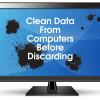Dan Pinnington
Dan Pinnington is the Vice President of Claims Prevention at practicePRO. This article first appeared in the December 2013 issue of LawPro magazine. Reprinted with permission. For more cyber safety tips, visit www.lawpro.ca.
Dan Pinnington is the Vice President of Claims Prevention at practicePRO. This article first appeared in the December 2013 issue of LawPro magazine. Reprinted with permission. For more cyber safety tips, visit www.lawpro.ca.

[This post is the seventeenth in a series. The original post can be found here.] Every law firm has huge amounts of irreplaceable data on its servers, desktop computers, laptops, tablets and smartphones. A cybercrime incident such as a malware infection or the hacking of firm systems could result in t… Read More

[This post is the fifteenth in a series. The original post can be found here.] People inside your office have the greatest knowledge of your systems and where the important data is located. Many of the largest and most damaging cyber breaches have been caused by rogue or soon-to-be-departing employees. You s… Read More

[This post is the fourteenth in a series. The original post can be found here.] Almost everyone has data in the cloud, although many people may not realize it. If you are using Gmail or another free email service, iTunes, Facebook, LinkedIn or other social media tools, Dropbox, or doing online banking, your … Read More

[This post is the thirteenth in a series. The original post can be found here.] At home, coffee shops, restaurants, hotels, conference centers, airport terminals and many other locations, many of us use wireless and Bluetooth for our smartphones, tablets and even our computers without a se… Read More

[This post is the twelfth in a series. The original post can be found here.] Lost or stolen laptops, smartphones and USB sticks are frequently involved in major data breaches. This is because they often contain large amounts of confidential or sensitive information (e.g., client data, firm and personal informa… Read More

[This post is the eleventh in a series. The original post can be found here.] Being able to access your work network while you are out of the office can provide increased productivity and flexibility. However, opening your systems to remote access creates a number of security risks as external network connecti… Read More

[This post is the tenth in a series. The original post can be found here.] Many of the technology devices used today are essentially disposable. When they get old or break down, they are simply discarded as it is too expensive to upgrade or repair them. As a result, law offices will frequently find themselves … Read More

[This post is the ninth in a series. The original post can be found here.] Long gone are the days when you had to worry about a single file folder that held all the documents for a particular matter, which you could easily secure by keeping it locked in a file cabinet. Today, client data can exist in electroni… Read More

[This post is the eight in a series. The original post can be found here.] Changing the default settings for the hardware and software used in your office is another critical step in safeguarding the security of your data and protecting yourself from cybercrime. This is probably the most technical of the steps… Read More

[This post is the seventh in a series. The original post can be found here.] When you are connected to the Internet, the Internet is connected to you. For computers to transmit data back and forth over the Internet, lines of communication must be established. These communications work through “ports̶… Read More

[This post is the sixth in a series. The original post can be found here.] There are millions of lines of computer code in the operating systems and programs that run on your computers, tablets and smartphones. These operating systems and programs will have hundreds or even thousands of settings and features. … Read More

[This post is the fifth in a series. The original post can be found here.] Like the keys that start your car or open the front door of your home or office, computer passwords are the keys that “unlock” your computer, your mobile devices and access to all the data on your network systems. We all hav… Read More

[This post is the fourth in a series. The original post can be found here.] Good behavior alone will not protect you from viruses or other malware infections. You must run software that will prevent and/or detect infections on your computers, and you may want to consider it for your tablets and smartphones too… Read More

[This post is the third in a series. The original post can be found here.] After email, your Internet browser is probably the second most dangerous technology tool in your office. Even casual surfing on the web can expose you to malware and other cyber security issues. You and your staff need to know how to sa… Read More
Computer passwords are the keys that “unlock” our computer and network systems. We all have more passwords than we can remember. This tends to make us a bit lazy. We use obvious and easy-to-remember passwords – even the word “password” itself. Or worse: we don’t use them at a… Read More
For lawyers handling real estate closings, it’s important to know that seller fraud continues to rise, especially with the upcoming holiday season when distractions are high, and fraudsters are active.
Lawyers Mutual has published previous alerts regarding the new filing requirements under the Corporate Transparency Act (“CTA”) that went into effect January 1, 2024. After reviewing additional resources, we want to emphasize concerns that we have about the risks and increased potential liability for lawyers undertaking the reporting requirements. This is especially true for the continuing reporting requirements after entity formation and initial reporting.